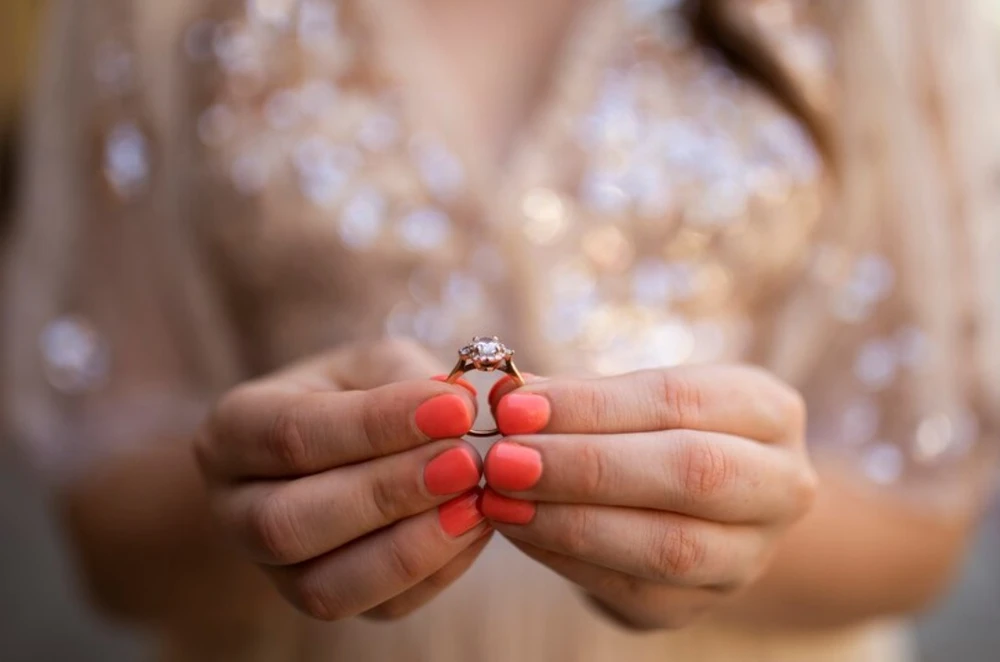Choosing the right ring for engagement is always a very significant decision that sometimes involves much thought and consideration. Traditionally, the ring signifies eternal love, commitment, and lifelong bonding between two people who love each other. However, growing awareness about environmental sustainability and human rights has forced many couples to seek ways through which they can make sure the ring symbolizes not only their love but also their ethical values. This has birthed the term ethical engagement rings, which denote jewelry sourced responsibly, is environmentally friendly, and made under fair labor conditions. But with the numerous types of engagement rings flooding the market, what do you look out for when picking out a sustainable engagement ring?
The Engagement ring you choose is one of the most exciting and important choices you’ll ever have to make. An engagement ring is a sign of love and loyalty. At Carat Diamonds, we have a beautiful selection of engagement rings to fit any style or personality. Our lab-grown diamonds are just as beautiful and brilliant as real diamonds, but they cost less. They can be used in traditional solitaires or more modern halo designs. Let us help you find the right ring that keeps shining for a lifetime and tells the story of your love. Check out our selections right now!
In this article, we dive a little deeper into the major principles of ethical engagement rings: responsible sourcing of materials, eco-friendly alternatives, and third-party certifications that will help navigate purchasing decisions. Want to get a diamond conflict-free or a beautiful lab-grown stone? Learn everything you need to know about how to choose an engagement ring that fits your values.
1. Ethical Sourcing of Diamonds and Gemstones
A diamond is probably the most typical associated stone with engagement rings. However, not all diamonds are cut from the same ethical cloth. Traditional diamond mining, especially in certain regions around the globe, has been linked to environmental destruction, human rights abuses, and the funding of conflict. These so-called “blood diamonds” or conflict diamonds are dug under exploitative and hazardous conditions and often contribute to war and social instability.
You can also check for the Kimberley Process Certification Scheme (KPCS) to ascertain whether your diamond was sourced ethically. This international initiative aims to cut off the flow of trade in conflict diamonds. An honest and genuine jeweler will always provide you with KPCS-approved diamonds, meaning the stones come from areas not used to fuel violence or conflicts.
However, the Kimberley Process doesn’t necessarily indicate that all mining is sustainable or even free of exploitation. Thus, many couples opt for lab-grown diamonds as an ethical alternative. Chemically identical to a natural diamond, these diamonds grow in a laboratory, avoiding the environmental toll of traditional diamond mining and are generally free of conflict.
2. Lab-Grown Diamonds vs. Mined Diamonds
Lab-grown diamonds have increased in the last few years, majorly concerning the ethics and environmental respects of their development. Diamonds grown in labs through high-pressure, high-temperature or chemical vapor deposition techniques. These techniques mimic the natural processes that form diamonds beneath the earth. Essentially, the advantages of lab-grown diamonds include the fact that they eliminate mining, which has severe negative effects on the environment, such as habitat disruption, water pollution, and carbon footprint.
In addition, cultured diamonds tend to be even cheaper than mined diamonds but possess the very same aesthetic look and hardness. Some customers also appreciate the transparency of lab-grown diamonds because they are typically procured and manufactured in controlled, ethical environments. Many reputed jewelers currently deal in a wide range of cultured diamond rings, thereby ensuring you get a stunning, responsible diamond ring that suits your budget as well as your style.
Although many assume lab-grown diamonds are the most sustainable option, people still often prefer natural diamonds due to their rarity and the symbolism attached to them. In the case of a natural diamond, make sure you source it responsibly, as I mentioned above, and consider buying from companies that are transparent about their sourcing.
3. Recycled Gold and Silver
For most men, the metal for the engagement ring is a choice between gold and silver. Unfortunately, mining old gold can prove quite disastrous to the environment, given the use of harmful chemicals, such as mercury and cyanide, in the extraction process. As demand for recycled gold and recycled silver increased, beautiful, ethical jewelry that didn’t require any additional mining ensued.
Solid gold recovered from old jewelry, electronics, or other items bearing gold and discarded is another essential source. Reusing precious metals minimizes the environmental degradation through mining and sustains a circular economy. Generally, jewelers selling recycled metals will promote their use of recycled metals and possibly be certified by various third parties working to promote more sustainable practices.
The other alternative is Fairmined gold—an option for gold that certified small-scale mines extract while meeting the strictest environmental and social requirements. In general, cooperative mining efforts that prioritize worker welfare and environmental sustainability produce Fairmined gold.
4. Ethical Sourcing of Other Gemstones
While diamonds are in most engagement rings, there are a colored gemstone that also plays a significant role, including sapphires, emeralds, and rubies, among other. Sourcing such gemstones can therefore lead to ethical concerns, such as degradation of the environment, unfair labor practices, and child labor during the mining operations. Thus, a responsible one is necessary when buying a gemstone.
A viable option for gemstones to look for when purchasing is those that are RJC certified, or other environmental and social responsibility certification. RJC certifications guarantee that responsible mines adhere to a tight set of standards governing environmental, social, and labor conditions when they mine the gemstones. Another option is Fair Trade gemstones, which responsible mines mine while valuing both environmentally sustainable practices and fair treatment of workers.
Eco-friendly enthusiasts would love the appearance of vintage or antique gemstones, which often appear in pre-owned rings. Here is an opportunity for a small recycling moment, and simultaneously reducing demand for new mining activities, while also getting a singular stone that could be historically interesting.
5. Ethical Jewelers and Transparent Practices
Beyond responsible materials sourcing, ethics also represent the practices of jewelers, who frequently share with customers open communication regarding their sources of materials and the structure of their jewelry pieces. People consider an ethical jeweler to do business in a way that is, firstly, fair in terms of labor, then environmentally responsible, and finally socially responsible.
Many jewelers give you information about where the stones, the metals, and how the manufacturing process comes from. Others may participate in other charitable programs, which support enhancing the lives of communities affected by mining or other industries. Some ethical jewelers donate some of the profit raised to environmental causes or social causes that you can further support through their initiatives.
When purchasing an engagement ring, you could look at jewellers who have third-party certification, such as the Responsible Jewellery Council (RJC) or Fairmined. These certifications mean the jeweler is adhering to higher levels of ethical standards and being transparent in their audits as no one auditing them has any connections to the business.
6. Consider Customization for a Personal Touch
Another way of ensuring that an engagement ring is not only ethical but also meaningful, is through working with a jeweler that allows customization of rings. Many ethical jewelers will work with the clients in producing bespoke rings using recycled metals, ethically sourced gemstones, and sustainable practices. You can also personalize the custom rings to make them acutely meaningful, making them even more special.
This is also a great opportunity to breathe new life into an old jewelry item, such as the family heirloom, while giving it a special engagement ring. This will ensure no waste and let the original jewelry maintain its emotional value while responsibly using it with thought.
Conclusion
It makes you feel empowered to choose an ethical ring: It helps you align your values with the commitment that you’re giving to your partner. It makes you feel empowered, knowing you can find that beautiful, sustainable ring that’s full of love and ethics. With just a little research and commitment to ethical practices, it is possible to find a ring that you can cherish not for its beauty but also for the positive impact it has on the world.
Whether one chooses a conflict-free diamond, a lab-grown stone, or a vintage gemstone, the most important thing is that an engagement ring reflects the values and love shared between two people. Ultimately, an ethically sourced engagement ring can stand for not only a commitment to a person but also a commitment to a better, more sustainable world.


